Eden McCallum Business and Economic Outlook Survey – Q4 2024
Growing, but guarded, optimism
The general improvement in business sentiment continues, and the worst days of 2022, with its energy crisis and rising inflation, are behind us. And yet, as 2024 draws to a close, optimism about the future is qualified, and even slightly guarded. This is the central finding of the latest Eden McCallum business and economic outlook research for Q4 of this year.
A survey of around 250 business leaders in the UK, the Netherlands and beyond has revealed that the basic trend of growing positivity has continued through the year. But some new challenges loom on the horizon, both economic and political.
This contrast is seen most strikingly in a key finding: that while business leaders remain positive about their own companies’ prospects, they have serious concerns about the overall global economy and the health of their home markets as well. While 45% of respondents are pessimistic about the global economy, and 55% are gloomy about their domestic economy, two-thirds remain optimistic about their own businesses’ prospects.
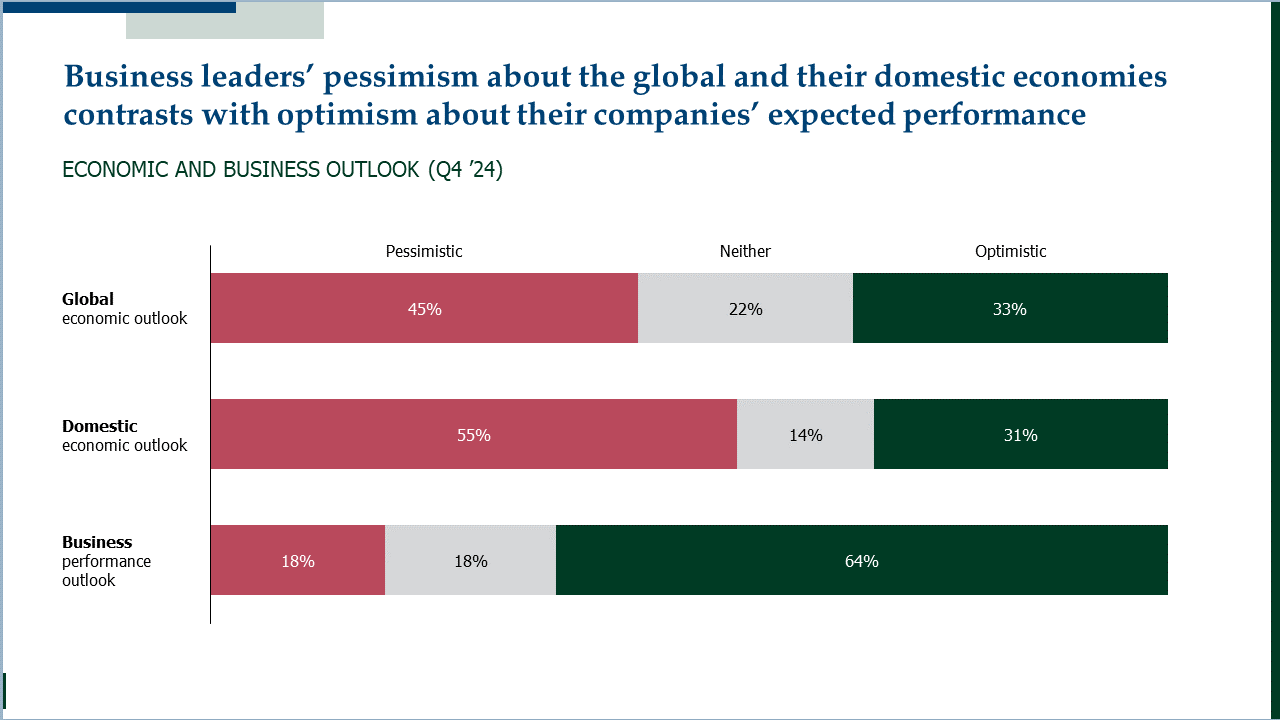
In general, the mood of business leaders has been on a steady upward path over these past two years. This time two years ago 82% felt negatively about the world economy; under half feel this way now.

British business leaders seem rather more concerned than their counterparts in the Netherlands. 68% of UK respondents are downbeat about their home market, whereas only 40% of Dutch respondents feel the same way.
Not that the mood is completely dark in the UK. It is true that only 18% of UK respondents are optimistic about the domestic economy. But that figure has risen sharply from just 3% two years ago. And optimism about the global economy is up to 32% of respondents today, from just 5% in 2022.
In the Netherlands a similar upwards trend has been seen, with sentiment improving, most notably on the economy. Business optimism has steadily increased also. Only 41% are pessimistic about the global economy today, half the level it stood at two years ago. On the home front gloom has lessened as well, down from 64% in 2022 to 40% today.
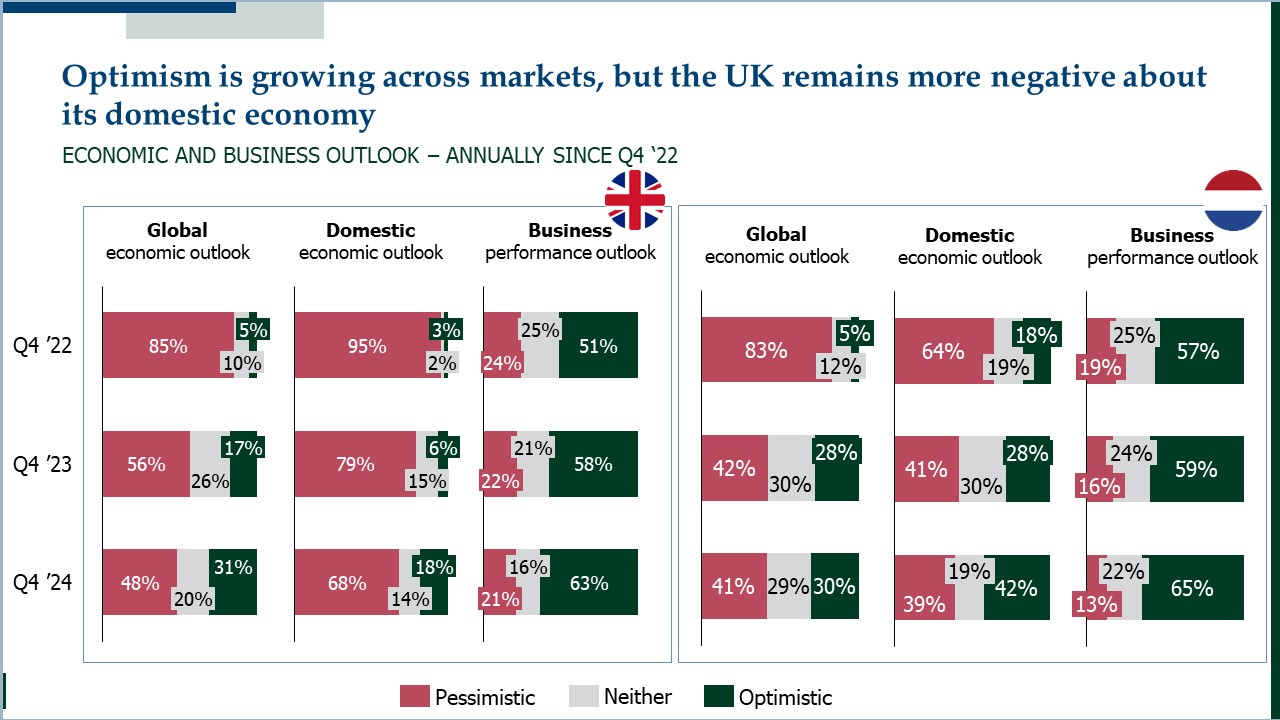
America and beyond
Among all respondents, geopolitical instability (mentioned by 60%) and trade barriers (55%) are seen as the greatest threats to domestic economies, but domestic politics do not escape careful scrutiny: 40% of respondents also see this as a possible source of difficulty.
In the wake of the US Presidential election, trade barriers have shot up as a perceived threat to domestic economies. Geopolitical instability remains high on the list of potential problems, while interest rate concerns have fallen sharply.
Concern about potential trade barriers has more than doubled: it stood at only 25% a year ago – today’s figure is 55%. At the same time, concerns over rising interest rates have reduced greatly. 35% saw this as a risk factor a year ago, today only 12% do. Dutch business leaders are much more exercised about domestic political risk than they were a year ago: just over half (51%) mention this as a concern, while only 23% did a year ago.
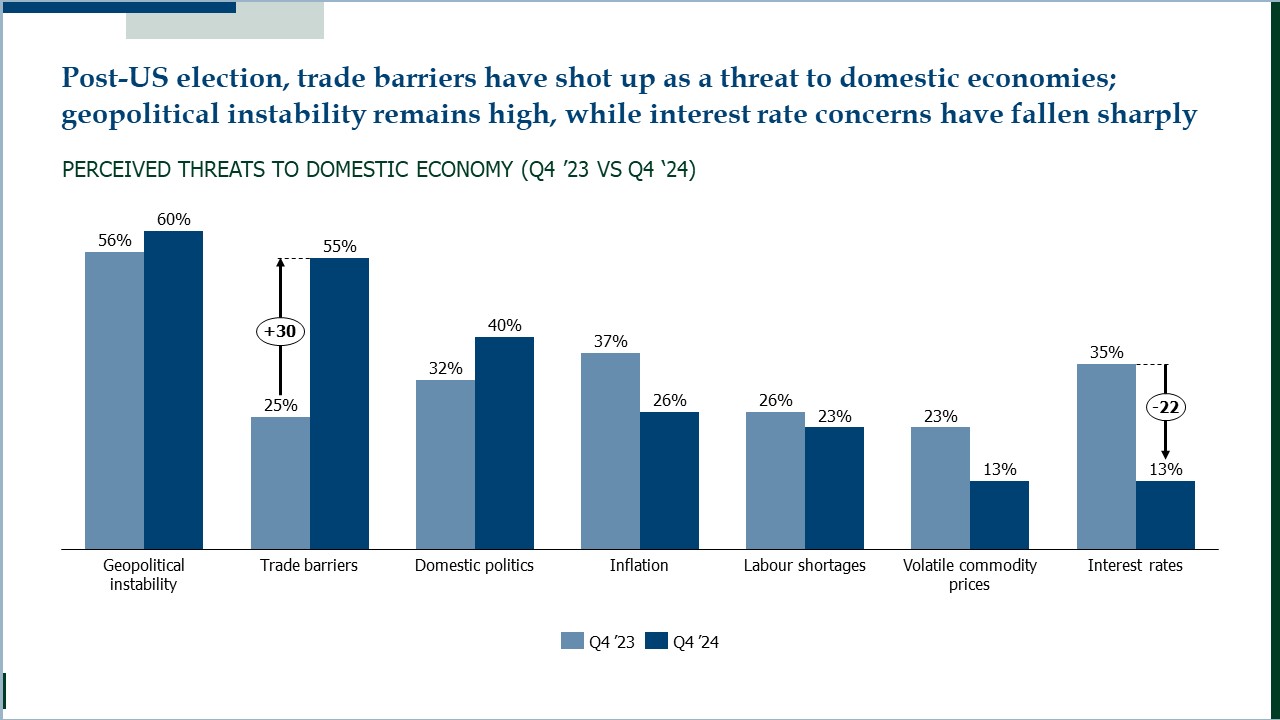
There has also been a slight tick upwards in those expecting to see a rise in interest rates; overall, though, most (66%) continue to anticipate declining rates. There is a similar level of calm about inflation: around 6 in 10 leaders expect inflation to reach target levels in the next 2 years.
Business leaders expect Trump’s Presidency to be negative for the global economy (79% feel this way) and their national economies (68%), while 6 in 10 anticipate a positive economic impact in the US.
Business leaders’ negativity about Trump’s coming impact on the global and their national economies is significantly greater than it was in 2016. Two-thirds of business leaders think he will have a damaging impact on their home market, compared with one-third in 2016. But the majority (58%) now expect he will have a positive impact on the US economy, vs only one-third in 2016.
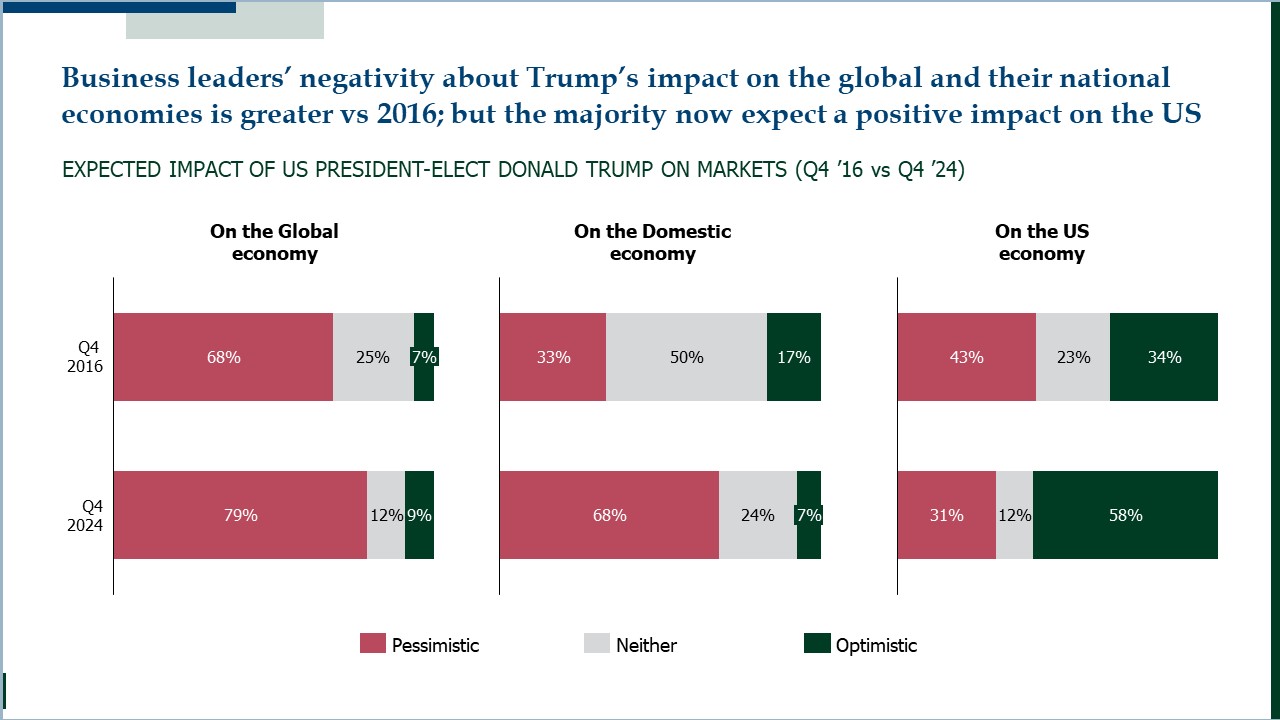
Business outlook
Among all respondents there has been a steady increase in optimism regarding the business outlook over the past three years – 64% feel positive about the next one to two years, compared with 54% two years ago.
Leaders view customer demand as the most important external factor likely to have an impact on company performance; geopolitical instability and regulation are also seen as significant. Trade barriers and the risk of regulatory change saw the sharpest increase in concern in the past year, while concern around interest rates saw the greatest decrease.
Talent remains the most important internal issue for business leaders – 40% cite that. No other issue is mentioned by more than three in ten business leaders. Optimising use of AI and data has grown in significance since Q4 2023, whilst sustainability and cash flow have decreased in importance.
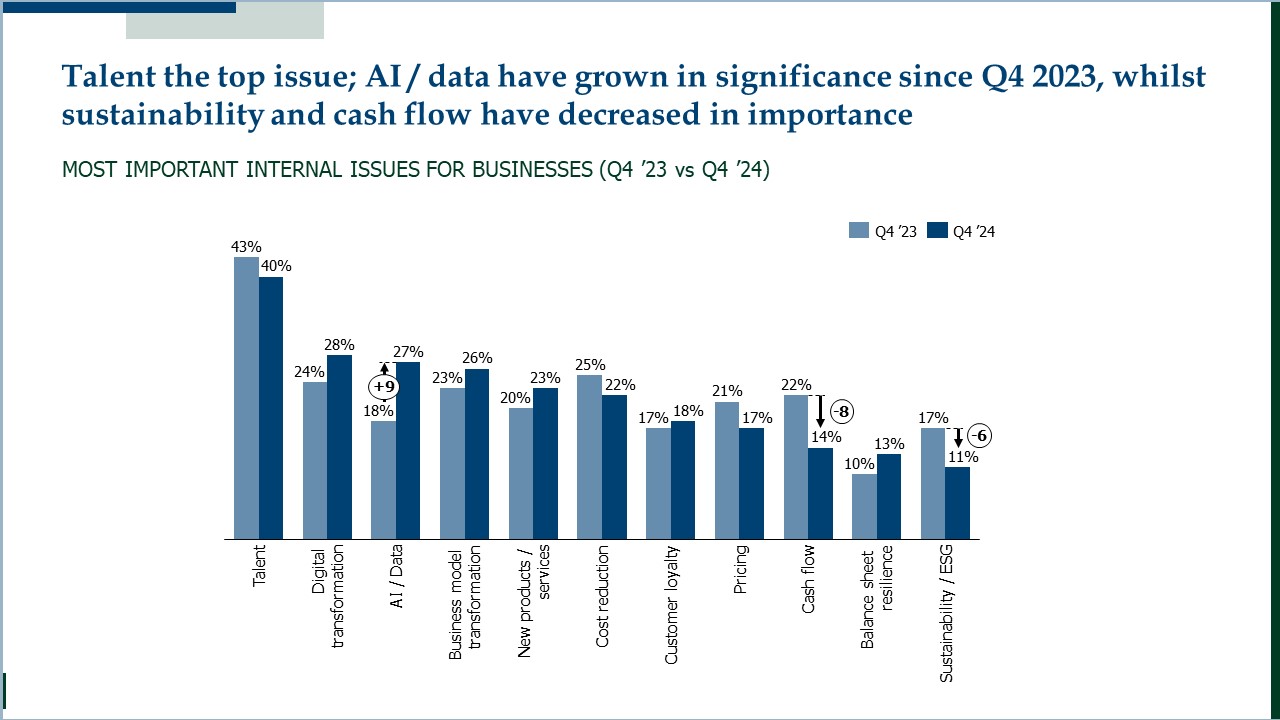
Dena McCallum, co-founder of Eden McCallum, says that business leaders are keeping a close eye on the shifting context they are operating in. “It is encouraging that leaders are still broadly optimistic for their own firms,” she says, “even while they acknowledge the economic challenges that face them. With political uncertainty in Europe and change in America, the new year may see business optimism tested further.”
Click here for the full survey results
Follow us on LinkedIn to remain updated

